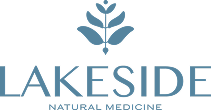The Truth About Quality
Post date: September 18, 2020
Author: Aidanne MacDonald-Milewski, ND

When it comes to health food stores and supplement aisles, it is easy to quickly become overwhelmed with a myriad of options. Where do you start? Once you’ve found the vitamin you were looking for, which form is best? It’s hard as a consumer to know what makes a high-quality supplement which can lead to confusion. My goal is to empower you with knowledge on what makes a supplement high quality so that you can be confident in the products you are consuming.
1. GMP Standards + Third Party Testing
These two factors are important in ensuring that what the label says is actually in the capsule you’re consuming.
The highest standard of supplement quality is overseen by GMPs. The FDA audits supplement companies based on an established set of guidelines known as Good Manufacturing Practices (GMP), which regulate the development, sourcing, manufacturing of health products to ensure the highest standard of quality and safety to consumers. A supplement must undergo 1-2 rounds of audits yearly and meet the GMP guidelines in order to become certified. Although the FDA does not directly certify the contents of supplements, third-party companies often will verify supplement quality based on GMP guidelines.
Third party testing is when a company external to the manufacturing supplement company assesses and certifies the quality of the product being tested. This process ensures that the claimed ingredients are identified in the product and are present in the dose and strength indicated on the bottle. They also ensure the product is pure and free from contamination. Third party testing companies include American National Standards Institute (ANSI), NSF International, United States Pharmacopeia (USP), TGA, Consumer lab (CL) and Dietary Supplement Verification Program (DSVP). Finding a mark or label stating “certified”, “verified”, or GMP compliant from a third-party testing company can increase your confidence in the quality of the product.
The following list includes companies that undergo third party testing (not extensive list):
– Designs for Health
– Gaia Herbs
– InterPlexus
– Integrative Therapeutics
– Nordic Naturals
– Metagenics
– Orthomolecular Products
– Pure Encapsulations
– Standard Process
– Thorne Research
– Vital Nutrients, etc.
2. Additives
Additives and fillers are formulated into supplements to serve as binding agents, flow enhancers, preservatives and bulking agents. Additive ingredients in supplements often include dairy, gluten, corn, etc. which can be allergenic or inflammation producing in susceptible individuals. Additionally, artificial sweeteners such and high fructose corn syrup can be used to modify supplement taste, so be sure to look for supplements that are sweetened with stevia, citric acid, or whole fruit extracts.
Other additives to be aware of include, but are not limited to, the following1:
- Carrageenan – is essentially a seaweed derived gelatin alternative and is considered safe to consume bulking agent
- Magnesium stearate – has been considered generally safe by the FDA but may come from GMO sources, so avoid products containing Magnesium stearate if you have a known or suspected sensitivity
- Calcium carbonate – is a common mineral based filler that is fine to consume in small doses but should not be consumed in excess, especially if already taking a calcium supplement
- Potassium sorbate – is a common preservative that is generally safe to consume but has allergic potential in susceptible individuals
When you look on the back of a supplement bottle, at the bottom of the nutrition label you will find a list of additives. All additive ingredients must be listed so you can have confidence in knowing what you’re ingesting.
3. Form + Absorption
Depending on the health of our digestive tract and our genetic makeup, we may have challenges absorbing certain nutrients. Certain forms of vitamins and minerals are generally better absorbed than others, and it’s an important thing to keep in mind when choosing the right supplement for you.
The most absorbable forms of common vitamins include the following:
– Zinc picolinate
– Magnesium bisglycinate or citrate
– Calcium citrate
– Iron bis-glycinate
Additionally, given that Vitamin A, D, E and K are fat soluble, they are best absorbed when provided in a lipid suspension.
Generally, the methylated form of b-vitamins such as B12 and folate is the most absorbable form. After harvesting these nutrients from the diet, our bodies naturally methylate them for use in bodily functions such as DNA production, enzymatic reactions, etc. A mutation in the MTHFR gene can result in reduced or dysfunctional methylation capacity which challenges the system’s ability to absorb and utilize these nutrients. By providing a pre-methylated form of B12 and folate, this step is bypassed for easy absorption. Approximately 40% of the population has some form of the MTHFR mutation which is why choosing the methylated form is your best bet!
As always, talk to your Naturopathic Doctor about dosing and for guidance when choosing supplements.
References:
1. The School of Applied Functional Medicine. Supplement Binders, Fillers and Additives: Making Sense of the Chaos. Accessed from: https://schoolafm.com/wp-content/uploads/2012/04/Supplement-Binders-Fillers-and-Additives.pdf. Accessed: September 14th, 2020.
Explore Related Posts:






